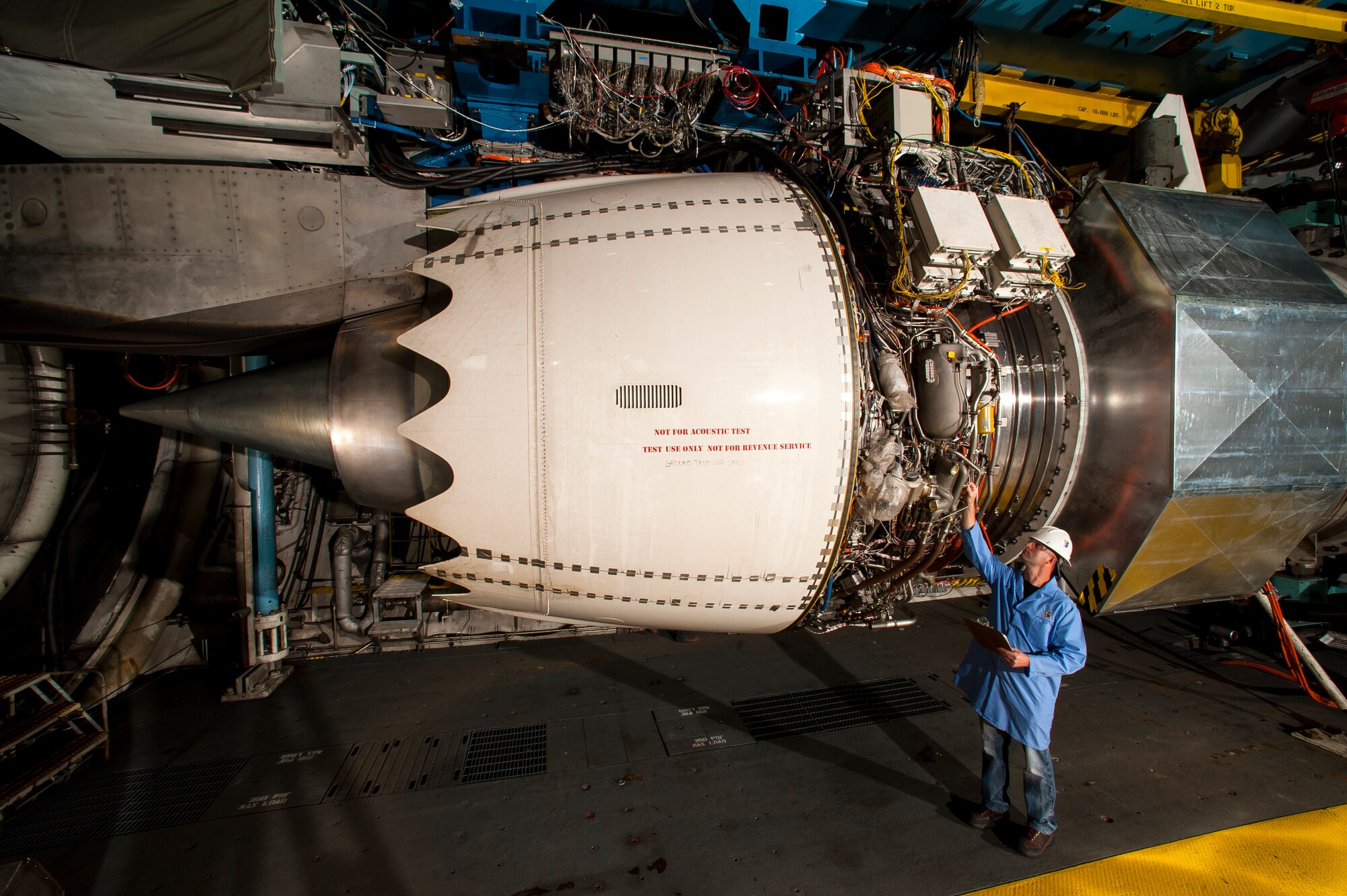EN 378 Fuel Spray Pattern Testing in Combustion Chamber
The European Standard EN 378 specifies a method to determine the fuel spray pattern of liquid fuels within combustion chambers. This test is critical for ensuring that engine performance meets the highest standards, as any deviation from optimal spray patterns can lead to inefficiencies and potential safety issues.
EN 378 testing involves the evaluation of the spray characteristics such as droplet size distribution, flow rate, and atomization quality. The primary goal is to assess how effectively fuel is sprayed into the combustion chamber, which directly impacts engine efficiency, emissions, and overall performance. This test plays a pivotal role in the development, certification, and ongoing compliance with international standards for propulsion systems.
The testing process requires precise control over various parameters including ambient conditions, fuel type, injection pressure, and chamber geometry. These factors significantly influence the spray pattern and must be meticulously controlled to ensure accurate results. The test setup includes a specialized combustion chamber designed to simulate real-world operating conditions as closely as possible.
Once the engine is assembled in the chamber, it undergoes a series of tests under different operating conditions to evaluate its fuel injection system performance. The results are analyzed using sophisticated optical and computational techniques that allow for detailed characterization of the spray pattern. The data generated helps manufacturers identify areas where improvements can be made to enhance both efficiency and emissions.
The test not only ensures compliance with EN 378 but also provides valuable insights into engine performance, which is crucial for continuous improvement in aerospace propulsion systems. It aids in optimizing fuel usage, reducing emissions, and enhancing overall engine reliability. This service is essential for quality managers, compliance officers, R&D engineers, and procurement teams involved in the development and certification of propulsion engines.
For instance, aerospace companies like Airbus and Boeing rigorously follow such standards to ensure that their engines meet stringent performance criteria. By adhering to EN 378, these organizations can confidently demonstrate compliance with international regulations while also improving product quality and safety.
Scope and Methodology
| Parameter | Description |
|---|---|
| Fuel Type | Diesel, Jet-A1, or other specified liquid fuels. |
| Injection Pressure Range | 0.5 MPa to 20 MPa (adjustable). |
| Test Chamber Geometry | Customizable dimensions to match engine specifications. |
| Optical Analysis Equipment | High-speed cameras and laser Doppler velocimeters for detailed spray pattern analysis. |
The testing process begins with the preparation of fuel samples according to specified standards. The combustion chamber is then calibrated to ensure accurate measurement of fuel injection parameters. During the test, the engine injects fuel into the chamber under controlled conditions, and the spray pattern is captured using advanced optical equipment.
Analysis involves evaluating various metrics such as droplet size distribution, flow rate, and atomization quality. These measurements are compared against predefined acceptance criteria to determine compliance with EN 378 requirements. The test results provide a comprehensive assessment of engine performance, highlighting any areas that require optimization.
Eurolab Advantages
At Eurolab, we pride ourselves on offering unparalleled expertise and state-of-the-art facilities for EN 378 fuel spray pattern testing. Our experienced team ensures precise control over all test parameters to deliver accurate results consistently.
- Comprehensive Testing Capabilities: We provide a full range of propulsion tests, including those required by EN 378 and other international standards.
- Advanced Equipment: Our laboratory is equipped with the latest in optical analysis equipment to capture detailed spray patterns.
- Precision Calibration: All test chambers are meticulously calibrated to ensure precise measurement of fuel injection parameters.
- Detailed Reporting: We offer comprehensive reports that include all relevant data and insights, aiding in informed decision-making.
Our facilities are designed to meet the highest standards for accuracy and reproducibility. Whether you're developing a new engine or ensuring ongoing compliance with international regulations, Eurolab provides the expertise and resources needed to succeed.
Why Choose This Test
- Ensures Compliance: Meets EN 378 requirements for fuel spray pattern testing in combustion chambers.
- Promotes Efficiency: Optimizes engine performance by identifying areas for improvement.
- Enhances Safety: Reduces the risk of inefficiencies and potential safety issues.
- Supports Innovation: Provides valuable data to support continuous product development and enhancement.
- Rigorous Standards: Follows international standards for propulsion engine testing.
- Expertise: Our experienced team ensures accurate and consistent results.
- Advanced Equipment: Utilizes the latest technology in optical analysis to capture detailed spray patterns.
- Detailed Reporting: Comprehensive reports provide insights for informed decision-making.
By choosing EN 378 fuel spray pattern testing, you ensure that your propulsion systems meet stringent performance criteria and are optimized for efficiency and safety. This service is essential for maintaining compliance with international standards while also supporting ongoing innovation in aerospace propulsion technology.





